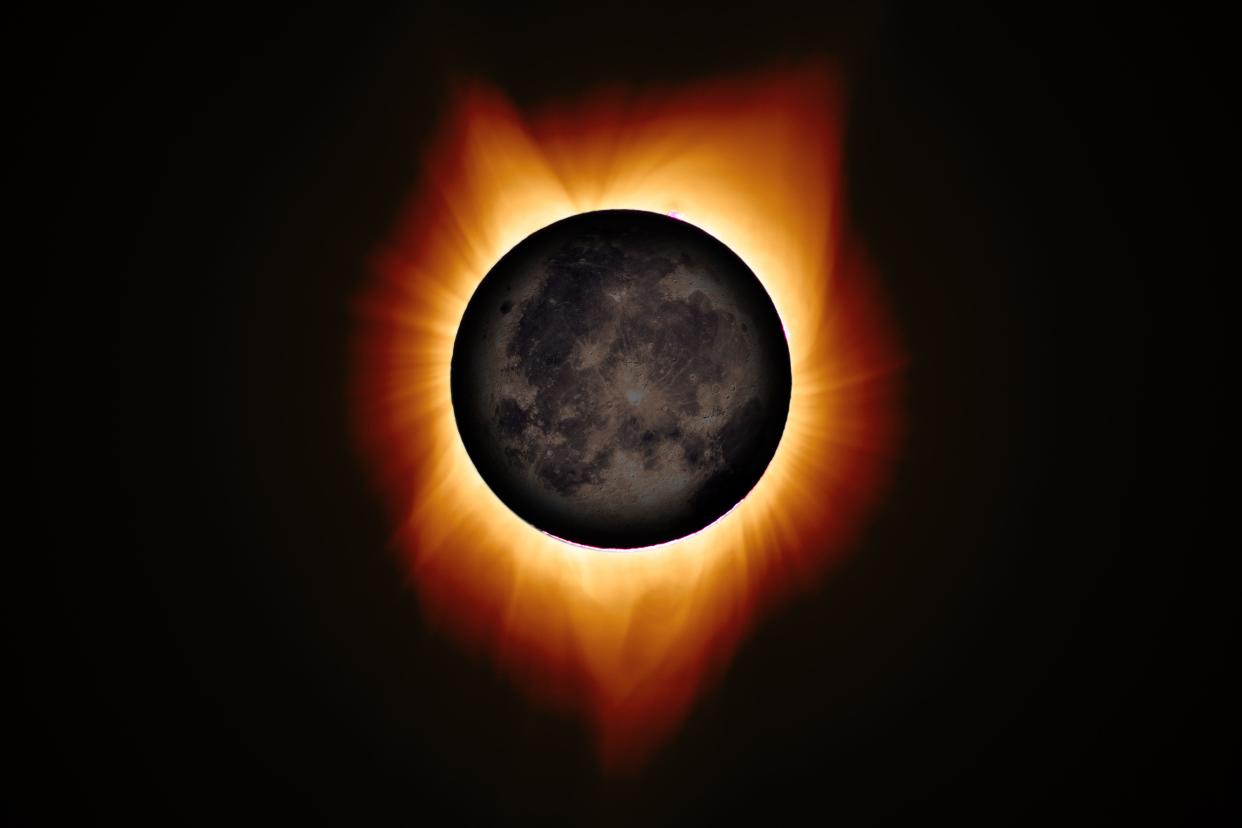How to watch the best views of the solar eclipse for free online

The 2024 total solar eclipse will be visible in 15 US states on Monday.
NASA Television, Google TV, and other platforms will offer free livestreams of the event.
The event will begin around 12:10 p.m. ET in Texas.
The 2024 solar eclipse is set to take place on Monday and 15 states will have access to view of the moon almost completely covering the sun.
Residents of Texas, Oklahoma, Arkansas, Missouri, Illinois, Kentucky, Indiana, Ohio, Pennsylvania, New York, Vermont, New Hampshire, and Maine, as well as areas of Tenessee and Michigan, will get the full view, weather permitting, according to NASA.
The event will start a little after 12:10 p.m. CT in areas of Texas and a little after 2 p.m. ET in Pennsylvania and New York.
If you're not in a state with a full view of the total solar eclipse or you can't miss work to watch the event, you can still watch the solar eclipse online — and you don't have to worry about your eyes getting damaged while doing so.
NASA Television
NASA Television can be livestreamed to your TV, computer, or cellphone starting at 1:00 p.m. ET.
On your computer or phone, you can access NASA television on NASA+, NASA TV web page, NASA's YouTube channel, NASA app for iOS, and NASA app for Android.
You can also visit NASA's account on social media to watch the livestream. NASA has accounts on X (formerly Twitter), Facebook, LinkedIn, YouTube, Twitch.tv, and Daily Motion.
Or, you can pull it up on the big screen through a television app or third-party service like Roku, Hulu, DirectTV, DISH Network, Google Fiber, Amazon Fire TV, Apple TV. Although some of these services may require fees if you don't already subscribe.
Google TV
Google TV will also offer free live coverage of the 2024 solar eclipse. Google TV will show live broadcasts from different US cities in the line of totality.
Google TV will give access to NBC News Now, Scripps News, Reuters Now, AccuWeather NOW, and a range of NBC channels in major cities and states. You can find each channel in the "For You" tab in Google TV.
Other livestream options
PBS' primetime science show NOVA will also host a livestream of the event and will feature scientists on its YouTube channel.
The US National Science Foundation will also begin live coverage at 1:55 p.m. ET.
Skywatching website timeanddate.com will cover the total solar eclipse with a livestream and live blog covering background information and live coverage.
University of Texas's astronomical research facility the McDonald Observatory will also livestream the total solar eclipse starting at 12 p.m. CT.
Read the original article on Business Insider
